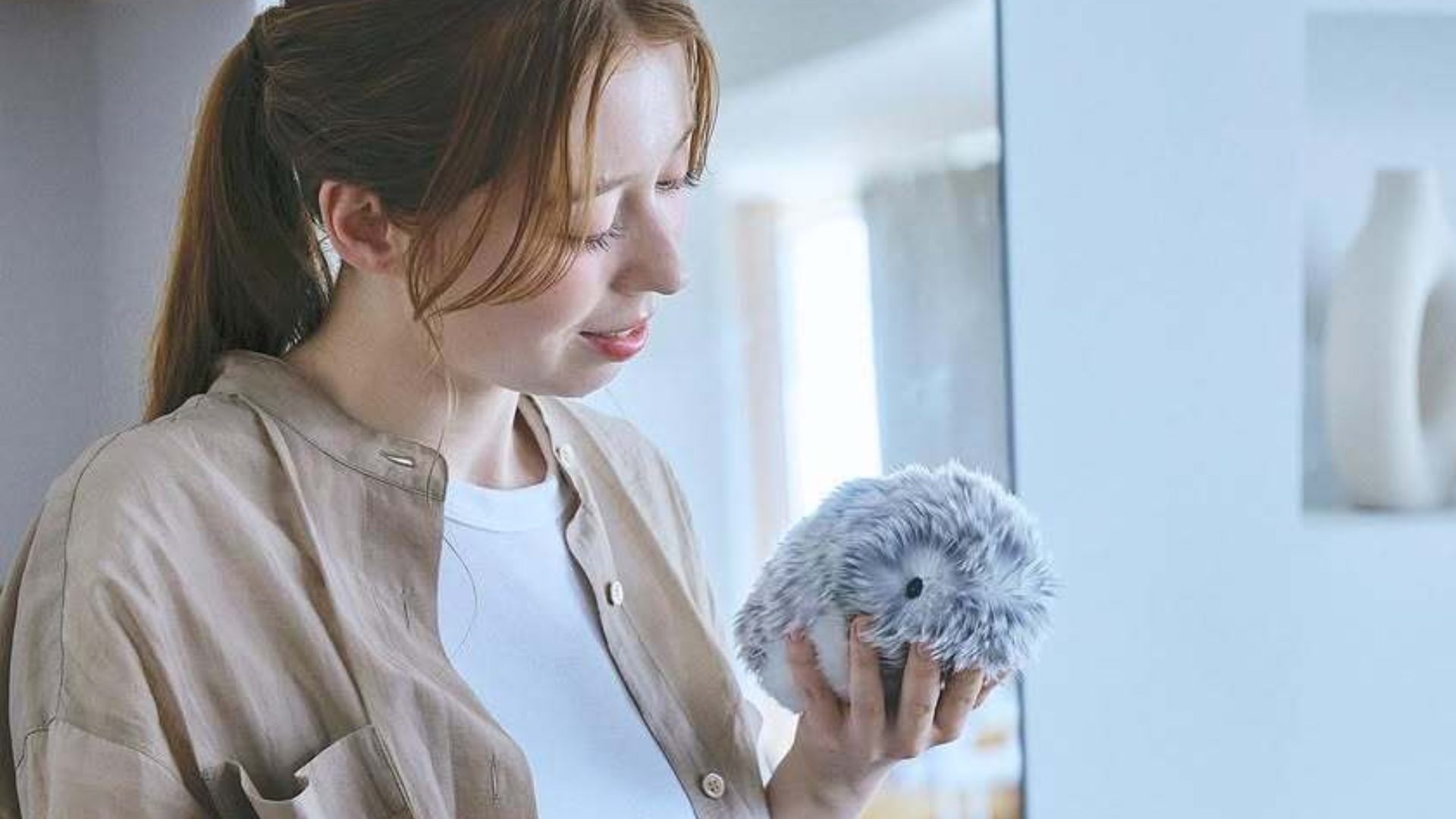Furry like real ones, endearing and incredibly comforting, robot pets are slowly but surely finding their way into homes. These little creatures, with batteries instead of hearts and AI hidden beneath their fur, aren't meant for children. While they may look like childish toys, they receive boundless affection from lonely adults. Hugely popular in China, they could soon be making their mark beyond its borders.
Robot animals: when science fiction becomes reality
Forget the unfinished, jointed toy dogs from catalogs and the remote-controlled cats that purr on command. In the age of new technologies , drones, and self-driving cars , robotic pets have come a long way. They are more sophisticated than ever. They are no longer the same old plush toys that drop a bone at the sound of a whistle and wag their tails when a button is pressed.
Last December, Casio, the watch brand known for its timepieces, released a more advanced version of its robotic pet. They launched Moflin, a mechanical guinea pig powered by AI that is virtually indistinguishable from a real one. With its silky fur, adorable face, and convincing gestures, Moflin has found its place in many families. Less demanding than a real pet, but just as endearing, robotic animals like this one fill a void that is almost unhealthy.
These robotic pets, alternatives to the Tamagotchis of yesteryear, are not intended for bored young people. They are aimed at lonely individuals desperately seeking companionship. They snuggle into the crinkled hands of the elderly and onto the sofa beds of students. According to the consulting firm IMARC Group, the market for "social robots" has a bright future and could grow sevenfold by 2033.
View this post on Instagram
Fake fur balls that are good for morale
These "robot animals," seemingly straight out of an episode of "Black Mirror," may not be alive, but they give the impression of being listened to, cared for, and understood. Halfway between a comforting cuddly toy and a pet, these four-legged robots that interact with their owners are a bulwark against the blues.
"Robot pets" aren't just for furnishing the house and warming your lap while watching a movie. They have much bigger ambitions. These gadgets with therapeutic effects contain AI within their furry bodies. In practice, this means robots that interpret their owner's voice and react differently depending on the mood they perceive. The cute little creature wiggles happily when it receives affection and growls when it feels neglected. It requires a bit more maintenance than an inanimate teddy bear or the dogs in Nintendogs.
"Robot animals" have even entered retirement homes to entertain seniors and offer them a semblance of affection. According to a study led by Dr. Charlotte Yeh, after several weeks of spending time with and cuddling them, their anxiety decreased, and they could even do without painkillers. This is quite promising for people who crave human contact.
More than just cuddly toys, they provide emotional support.
In Japan, a country with a Ministry of Loneliness , and in China, where people surround themselves with pet stones due to a lack of human companionship, robot animals are not considered a "bizarre hobby." In fact, they are anything but a niche market. Robot animals are part of everyday life. They protrude from shoulder bags, perform in parks, and follow their owners everywhere.
They fulfill an urgent need for affection and combat a loneliness that has become symptomatic. Moreover, they offer the same benefits as an animal with a wet nose and keen ears. Reduced stress, improved mood… these are readily available remedies, palliatives in a self-centered society. And at least they prevent impulsive and thoughtless adoptions. Animals with emotions are no longer the collateral victims of endemic loneliness.
Adopting a robot pet is also a responsible act to avoid the tragic scenario of abandonment, which is repeated every year. You're acting for your own mental well-being without falling into animal neglect. This shows that AI can have positive aspects, provided it doesn't fall into the wrong hands.

